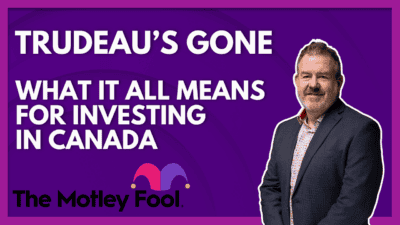Convenience store operator Alimentation Couche-Tard Inc. (TSX:ATD.B) has been on a tear for over 16 years. Since 2000 shares have exploded over 7,000% compared to a paltry TSX return of just 60%. The success has been consistent as well. Last year, shares were up around 26%, beating the market by almost 40%.
Is Couche-Tard the long-term holding your portfolio needs?
Growth opportunities are still ongoing
Couche-Tard operates thousands of stores across North America, Asia, and Europe. The company operates several recognizable global brands such as Circle K, Ingo, Kangaroo Express, and Statoil. These brands have given Couche-Tard leading market positions in Canada, the U.S., Scandinavia, and the Baltics. Roughly 70% of its revenues are derived from North America. The remaining 30% stems from numerous international markets.
The company’s key advantage has been its ability to roll up a fragmented industry. A significant amount of global convenience stores are either independent or regionally operated. If connected to Couche-Tard’s massive buying power and supply chain, costs could be meaningfully reduced with cross-selling opportunities boosting the top line. So far, that’s exactly what the strategy has been.
Since 2003 Couche-Tard has made 47 acquisitions, adding over 1,600 stores to its portfolio. This isn’t just a revenue-boosting strategy, however. As the industry consolidator, most of the acquired companies are actually more valuable once under Couche-Tard’s control. Returns on capital have averaged over 15% since 2003, proving that management is able to squeeze value out of nearly every deal.
Even during the recession, the firm achieved returns on capital of 13.2% and 16.4% during 2008 and 2009, respectively.
Lower fuel prices are actually boosting margins
In some ways, Couche-Tard is a great hedge against low oil prices. Not only were fuel volumes up over 10% last year, but profit margins were similarly higher. Profits increased from $0.18 a gallon in 2014 to $0.22 gallon in 2015. This is a big tailwind seeing as fuel sales contribute almost 40% of profits. In a world of falling energy prices, Couche-Tard is the rare winner.
High fuel margins helped boost free cash flow for the sixth year in a row, reaching $978 million. While shares trade at a lofty 30 times free cash flow, it’s a fair price for a company that has grown free cash flow by 28.6% annually since 2010.
Management still believes there is plenty of room for additional international expansion. In Europe, for example, the company only operates 2,229 stores compared to 7,987 in North America. Because profitability is higher in Europe than in North America, shareholders should benefit from both higher revenues and profits.
With historically low debt levels, falling interest rates, ample free cash flow, and plenty of expansion opportunities left, Couch-Tard shouldn’t have a tough time continuing to compound investor capital at impressive rates.






